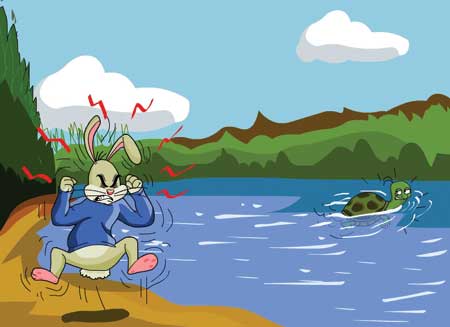What is courage and how to develop it?

Physical Courage: Facing physical danger, pain, or hardship. For example, a firefighter entering a burning building to save someone.
Moral Courage: Standing up for what is right, ethical, or just, even in the face of opposition, criticism, or social pressure. This includes whistleblowers exposing wrongdoing or individuals advocating for human rights.
Emotional Courage: The strength to face emotional pain, grief, or personal loss. This involves being vulnerable, expressing one’s true feelings, or seeking help when needed.
Intellectual Courage: Challenging conventional wisdom, questioning accepted beliefs, and being open to new ideas, even when they are unpopular or controversial.
Developing courage involves building mental and emotional strength to face fears, challenges, and uncertainties. Here are several strategies to help cultivate courage:
1. Self-Awareness and Understanding
Identify Fears: Understand what you are afraid of and why. This helps in addressing the root causes.
Self-Reflection: Regularly reflect on your thoughts and feelings. Journaling can be an effective tool.
2. Small Steps
Start Small: Begin by facing smaller fears or taking minor risks. This helps build confidence gradually.
Set Achievable Goals: Break down larger goals into smaller, manageable steps.
3. Positive Mindset
Positive Self-Talk: Replace negative thoughts with positive affirmations.Visualize Success: Imagine yourself successfully facing your fears. Visualization can strengthen your resolve.
What is Fortitude and how to develop it?
Fortitude is a virtue that involves the mental and emotional strength to face adversity, danger, or pain with courage and resilience. It is often associated with enduring hardship and maintaining moral integrity despite challenges. Fortitude can be broken down into several key components:

Courage: The ability to confront fear, pain, danger, or uncertainty. Courage allows individuals to take action in difficult situations, even when they are afraid.
Perseverance: The capacity to persist in the face of setbacks and obstacles. Perseverance involves sustained effort and determination over time, despite difficulties.
Resilience: The ability to recover quickly from setbacks, adapt to change, and keep going in the face of adversity. Resilience is about bouncing back and maintaining a positive outlook despite challenges.
Endurance: The ability to withstand prolonged stress, hardship, or pain. Endurance involves both physical and mental stamina.
Developing fortitude, or mental and emotional strength in facing adversity, challenges, and difficulties, involves cultivating resilience, persistence, and a positive mindset. Here are some practical steps to help you develop fortitude:
1. Set Clear Goals
Identify your objectives: Clearly define what you want to achieve in both the short-term and long-term.
Break them down: Divide larger goals into smaller, manageable tasks to make them less overwhelming.
2. Develop a Growth Mindset
Embrace challenges: View obstacles as opportunities to learn and grow.
Learn from failure: See failures and setbacks as valuable learning experiences rather than as defeats.
Seek feedback: Actively seek and apply constructive criticism to improve.
3. Build Resilience
Practice mindfulness: Techniques like meditation, deep breathing, and yoga can help you stay present and manage stress.
Develop coping strategies: Find healthy ways to cope with stress, such as exercising, journaling, or talking to a trusted friend or counselor.
4. Strengthen Emotional Regulation
Self-awareness: Understand your emotions and triggers. Regular self-reflection can help you manage your reactions better.
Stress management: Develop skills to manage stress effectively, such as time management, prioritization, and relaxation techniques.
Healthy habits: Maintain a balanced lifestyle with regular exercise, sufficient sleep, and a healthy diet.
5. Cultivate Positive Relationships
Support system: Surround yourself with supportive and positive people who encourage and inspire you.
Empathy: Practice empathy and understanding in your relationships to build strong, mutually supportive connections.
Seek mentorship: Learn from those who have demonstrated fortitude in their own lives.
What are the advantages of courage and fortitude?
Courage and fortitude are closely related virtues that play a crucial role in personal development, resilience, and success. Here are some of the key advantages of these qualities:

Advantages of Courage
Overcoming Fear: Courage helps individuals confront and overcome their fears, whether they are physical, emotional, or psychological. This enables people to take necessary actions despite feeling afraid.
Pursuing Goals: Courage allows individuals to pursue their goals and dreams, even when faced with significant challenges and obstacles. It promotes persistence and determination.
Growth and Development: Stepping out of one’s comfort zone requires courage. This often leads to personal growth, as new experiences and challenges foster learning and development.
Inspiring Others: Courageous actions can inspire and motivate others to also act bravely, creating a ripple effect of positive change.
Ethical Behavior: Courage often involves standing up for what is right, even in the face of opposition. This moral bravery is essential for maintaining integrity and ethical standards.
Leadership: Effective leaders often demonstrate courage by making tough decisions, taking responsibility, and leading by example. This can build trust and respect among followers.
Advantages of Fortitude
Resilience: Fortitude is the ability to endure adversity and remain steadfast. This resilience helps individuals cope with difficult situations and bounce back from setbacks.
Long-term Success: Fortitude involves sustained effort and perseverance. It is crucial for achieving long-term goals and success, especially when progress is slow or obstacles are numerous.
Mental Toughness: Fortitude builds mental toughness, enabling individuals to maintain focus, discipline, and motivation even in challenging circumstances.
Stress Management: With fortitude, individuals are better equipped to handle stress and pressure, maintaining their composure and making rational decisions.
Adaptability: Fortitude helps people adapt to changing conditions and remain flexible. This adaptability is key to navigating the uncertainties of life and work.
Why weakness and faintheartedness is a curse?
Weakness and faintheartedness are often considered a curse because they can significantly impede personal growth, achievement, and overall well-being. Here are several reasons why these traits are seen in such a negative light:

Limited Opportunities:
Personal Growth: Weakness and faintheartedness can prevent individuals from taking on challenges, pursuing goals, and stepping out of their comfort zones, which are essential for personal development.
Career Advancement: In professional settings, these traits can hinder career progression as they may lead to missed opportunities for leadership roles, promotions, and recognition.
Mental Health Impacts:
Anxiety and Depression: Persistent feelings of weakness and faintheartedness can contribute to mental health issues, including anxiety and depression, due to a lack of self-confidence and self-efficacy. Stress: The fear of failure or inability to cope with challenges can result in chronic stress, impacting both mental and physical health.
Social Consequences:
Isolation: Fainthearted individuals may avoid social interactions or challenging social situations, leading to loneliness and isolation.
Dependence: They might become overly dependent on others for support, leading to unhealthy relationships and a lack of self-reliance.
Decision-Making and Problem-Solving:
Indecisiveness: Weakness and faintheartedness can lead to indecision and procrastination, impairing effective problem-solving and timely decision-making.
Avoidance: Individuals may avoid confronting problems altogether, leading to unresolved issues and escalating complications.
Self-Perception:
Low Self-Esteem: Constantly feeling weak or fainthearted can erode self-esteem and self-worth, creating a negative feedback loop that reinforces these feelings.
Lack of Fulfillment: A sense of weakness can prevent individuals from achieving their full potential, leading to feelings of unfulfillment and regret. However, it’s essential to recognize that these traits are not permanent and can be addressed through various strategies, including:
Building Resilience: Engaging in activities that gradually build confidence and resilience.
Positive Thinking: Practicing positive self-talk and visualization techniques to combat negative thoughts.
How so called friends and even close relatives take advantage when they find you are very weak?
Friends and close relatives might take advantage of someone they perceive as weak in various ways, often motivated by personal gain, power dynamics, or unintentional neglect of boundaries. Here are some common scenarios:

1. Emotional Manipulation
Guilt Tripping: They might make you feel guilty for not meeting their needs or expectations, leveraging your emotional state to control you.
Gaslighting: Manipulating you into questioning your reality or self-worth to make you more dependent on their version of the truth.
2. Financial Exploitation
Borrowing Money: Continuously asking for money, knowing you have a hard time saying no.
Using Resources: Taking advantage of your assets (like your home, car, or possessions) without fair compensation or appreciation.
3. Time and Energy Drain
Over-reliance: Expecting you to always be available to help with their problems, projects, or tasks, draining your time and energy.Unfair Expectations: Imposing unreasonable demands on your time or expecting you to prioritize their needs over your own.
6. Social and Personal Exploitation
Social Leverage: Using your social status or connections to their advantage without reciprocating or giving you credit.
Personal Gains: Leveraging your weaknesses to elevate their own status or to fulfill their personal agendas.
Coping Strategies
Set Clear Boundaries: Clearly define what is acceptable and what is not in your relationships. Communicate these boundaries firmly and consistently.
Seek Support: Surround yourself with people who respect and support you. Consider professional help if needed to strengthen your emotional resilience.
Practice Self-Care: Focus on activities and practices that reinforce your self-worth and well-being, ensuring you have the strength to stand up for yourself.
Develop Assertiveness: Learn to say no and to assert your needs and rights in a calm and confident manner.
Educate Yourself: Understand common manipulation tactics so you can recognize and address them when they occur.
Thanks for reading.




